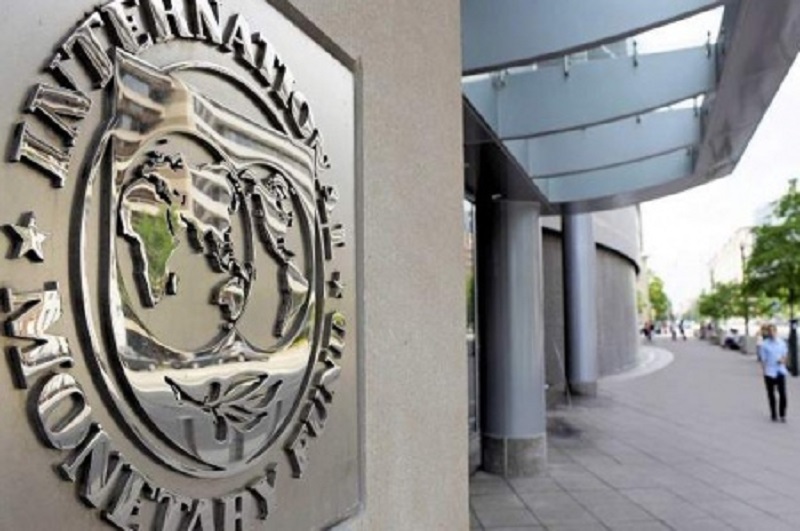
He International Monetary Fund (IMF) worsened its inflation and economic growth projections for Argentina in 2023, according to the latest report World Economic Outlook (WEO) released Tuesday in Washington. Far from linking this result to the consequences of the adjustment policies that the body itself promotes, it redoubles the commitment to speed up the fiscal and monetary adjustment.
The IMF reduced from 2% to 0.2% the estimate of the increase in the Gross Domestic Product (GDP) with respect to the last report of January, and raised from 60% to 88% the projection of inflation. While they anticipate a rise in the unemployment from 7% in 2022 to 7.6% in 2023.
For her part, the overall growth projection for this year was located by the IMF in 2,8 % (compared to 3.4% in 2022), that is, 0.1 points less than in the last report. As for global inflation, headline inflation is projected to fall from 8.7% in 2022 to 7.0% in 2023 due to lower commodity prices.
Bad note for Argentina
- Economic growth: the IMF reduced the growth forecast for 2023 to 0.2%, practically an economic stagnation, in line with the forecasts of the World Bank. Despite the cut compared to 2% in the report at the beginning of the year, the calculation is optimistic compared to private estimates, which expect a sharp drop of 2.7% in GDP (Survey of Market Expectations, BCRA).

- Inflation: The Fund raised inflation from 60% to 88% (end to end) for the current year, above the 60% previously forecast and which was also projected in the 2023 national budget drawn by Sergio Massa. Once again, the adjustment is below private projections: the latest REM (March) places the increase in the consumer price index projected for the year at 110%. Likewise, the Fund raised the average annual inflation estimate from 72.4% to 98.6%.
- unemployment: according to the report, unemployment will rise from 7% of the Economically Active Population (EAP) in 2022 to 7.6% this year. It also forecasts a slight drop to 7.4% in 2024.
- External sector: The Fund continues to consider that Argentina will have a favorable result in the current account of the balance of payments (trade and services account), calculated at 1% of GDP, despite the drought that affects the level of exports.
IMF Chief Economist Pierre-Olivier Gourinchas, explained this Tuesday morning at a press conference that “the reason why we have this downward revision of the GDP, in 2023 it is very low, is due to the massive drought and we are seeing if it is (a) transitory phenomenon. In 2024 we expect growth of 2%”.
Likewise, he reiterated the pressure for the country to limit itself to meeting the goals of the debt agreement with the agency, especially with regard to the fiscal adjustment goal of 1.9% deficit in relation to GDP for this year. “Core inflation pressures are still present due to unanchored inflationary expectations. We estimate that it will continue at very high levels. That is where the importance of having contractive and prudent monetary and fiscal policies comes in, in accordance with the program with the IMF”, he concluded emphatically.
In its latest quarterly review report on Argentina released last week, the IMF said that “a tight monetary policy stance must be maintained to cope with high and growing inflationary pressures and support demand for assets in pesos.” , demanding a rise in interest rates so that they are above inflation (positive real rates), as well as an acceleration of devaluation (which, on the contrary, is a measure that accelerates inflation).
international perspectives
The work accounts for an international context in which “the world economic recovery endures” but it is noted by the existence of difficulties.
Refering to overall growth projection, pointed to a drop from 3.4% in 2022 to 2.8% in 2023, reducing its forecast by 0.1 points compared to the last report. Among them, the calculation of growth of the USAkept stable that of the European Union y China (5.2%)that of India (5.9%) and that of emerging economies in general fell slightly.
The economic slowdown this year will be concentrated in the euro area and the United Kingdom, according to the report. On the contrary, many dependent economies, called “emerging and developing economies” would be recovering. These nations are expected to grow 3.9% this year and 4.2% next.
For Latin Americathe perspective went from growth of 1.8% to 1.6%, highlighting the drop in the forecast in Brazilwhich would grow 0.9% instead of the 1.2% projected at the beginning of the year.
The IMF also notes a general slowdown in growth over the medium term. The five-year projections were steadily lowered from 4.6% in 2011 to 3% 2023.
Refering to world inflationthe Fund expects headline inflation to fall from 8.7% in 2022 to 7.0% in 2023 due to lower prices of raw materials.
“Spurred by pent-up demand, persistent supply disruptions and spikes in commodity prices, inflation hit multi-decade highs last year in many economies, prompting central banks to aggressively tighten to return to achieve its targets and keep inflation expectations anchored,” the IMF said.
Likewise, the financial instability is one of the axes in the magnifying glass. The Fund identifies as one of the most worrisome risks “the side effects that the sharp tightening of monetary policy in recent years is beginning to have on the financial sector.” He believes that, after a prolonged period of subdued inflation and low interest rates, the financial sector had become too complacent about maturity and liquidity mismatches.
“Banks’ generally strong liquidity and capital positions suggested they could absorb the effects of monetary policy tightening and adapt smoothly. However, some financial institutions with business models that relied heavily on the continuation of the extremely low nominal interest rates of recent years have come under great strain, as were not ready or unable to adapt to the rapid pace of rate increases”, indicated the report
“With the recent increase in volatility in financial markets and multiple indicators pointing in different directions, the fog around the global economic outlook has thickened. uncertainty is highand the balance of risks has shifted firmly to the downside as long as the financial sector remains unstable,” the agency said.
Source: www.laizquierdadiario.com

